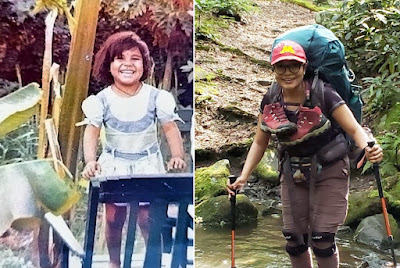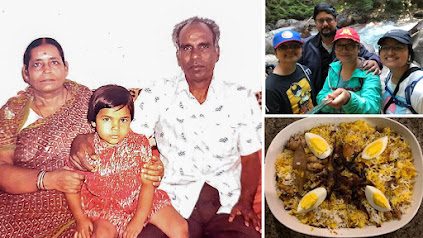My
early childhood took place in a small village near the Seoni area of Madhya
Pradesh in rural India, the inspiration for Rudyard Kipling’s “The Jungle Book.”
The village does not exist on modern maps and forests, wild animals, gurgling
rivers, marble rocks and misty waterfalls surround the landscape that I called
home.
My parents were doctors for
the Indian government, serving their tenure in rural India. There were no
schools and no rules: a dream life for a kid! But that changed too soon.
When I was old enough to go to school, I moved to a town called Jabalpur where I lived with my grandparents for the next several years. My grandparents were raised in Gandhi’s India and worked their way out of extreme poverty. They espoused the values of hard work, integrity and education, and operated with strict personal discipline. My grandparents instilled these values in me to create a foundation that still supports me today.
Even with these important
values at a young age, I became aware of gender discrimination in my society.
Girls did not have the same opportunities and privileges as boys. This enraged
me, but it also fueled me to forge my own path to freedom and equity. I found a
lifeline in education and committed myself to it. Eventually, I gained
admission into the mechanical engineering department at a premier engineering school,
Visvesvaraya National Institute of Technology. Then, all hell broke loose.
Mechanical engineering was
not for girls — or so I was told. I faced tremendous resistance through
bullying, harassment and even threats to personal safety. My family, faculty
and friends were all worried, and debate raged to encourage a switch to another
discipline. I considered it briefly, but a stubborn streak took over: This was my
seat, I earned it on my own merit and I would not give it up.
Once I stood up for myself,
others stood beside me. I made friends and found advocates, and they helped me through;
they supported me not just throughout my time in college, but also encouraged
me to pursue higher education in the United States.
I came to the U.S. in 1998
and joined the University of Minnesota to pursue a master’s degree and PhD in mechanical engineering. This
was a different world. As Marvel film fans would say, I found a wormhole into
the multiverse! I learned, grew and formed deep friendships that still tether
me to this world. One such friendship turned into a commitment to share our
laughter and tears for the rest of our lives. I met my husband Suvo, and we’ve
been married for 21 years. Our beautiful children, Diya and Aadi, are our pride
and joy, as well as our guides into western culture. Today, I live in Southeast
Michigan, and my work “home” is GM’s Milford Proving as an executive director
within GPD.
I frequently get asked, “How
often do you go home?” This question baffles me because home is not a zip code
for me — it’s a feeling. I have travelled thousands of miles, across oceans and
into alternate realities, and I still find myself at home on a nature hike, in the
effortless company of friends, within cuddle time with my kids or when reading an
engaging book.
Mostly, I discover home in the
tastes and flavors of my childhood: the sweetness of cardamom Chai, a crunchy
bite of Masala Dosa and the spicy depths of Biryani. These transport me back to
my childhood, and bring me “home” anywhere, anytime.



